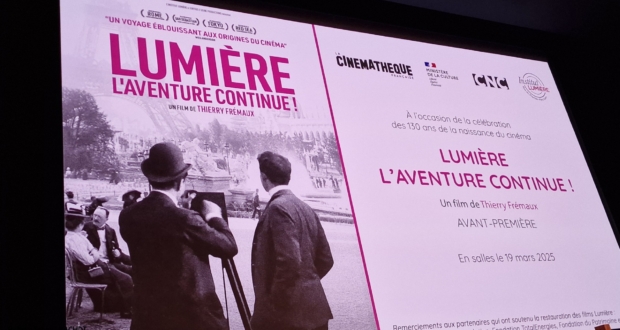When you sit down in front of your favorite Rom-Com, what do you see? Do you see an impossible set of pictures designed to make you smile; or a template for your life?
On a rational level, we all know romantic comedies are brainless fluff. Ask anyone in a relationship: chances are they didn’t meet doing something quirky, and they rarely find themselves swept off their feet by some grand romantic gesture, and would never dream of faking an orgasm in the middle of a café. Such is life; and if we all spent our days waiting to be seduced by George Clooney, 1990’s Hugh Grant or, um, Billy Crystal the gene pool would soon collapse and the roaches would take over. But… what if I told you there’s a good chance you believe it anyway? despite what your rational mind tells you.
 It’s called ‘The Notting Hill Effect’ and psychologists have been grappling with it for years. The basic premise is that decades of idealised media images have influenced our subconscious minds to expect nothing less from love than a Hollywood dream. Rather than acknowledging that people fall in and out of love; thoughtful guys turn into jerkwads and sex loses its lustre, we instead blame ourselves when our relationships turn sour. Nor is this just rambling conjecture from a bunch of media studies teachers; plenty of research backs up the idea that Rom Com overdose can ruin our love lives.
It’s called ‘The Notting Hill Effect’ and psychologists have been grappling with it for years. The basic premise is that decades of idealised media images have influenced our subconscious minds to expect nothing less from love than a Hollywood dream. Rather than acknowledging that people fall in and out of love; thoughtful guys turn into jerkwads and sex loses its lustre, we instead blame ourselves when our relationships turn sour. Nor is this just rambling conjecture from a bunch of media studies teachers; plenty of research backs up the idea that Rom Com overdose can ruin our love lives.
The Big Lie
The blaming of Rom Coms for our romantic ills may be a new one, but its roots go back centuries. Ever since the Video Nasty scare, we’ve tried to quantify what effect violent films can have on children, with contradictory results. A few decades earlier we asked the same about horror comics; a few decades before that parents would deplore their daughters reading penny romances, fearing they led to loose morals.
If this all sounds pretty dubious, try imagining such stories in a different context. Propaganda works by feeding the populace a steady drip of sanitised images; be they the worker/superman, or the insidious Jew threatening the Aryan fatherland. The greatest propagandist who ever lived may well have been Josef Goebbels, and his (misattributed) maxim “If you repeat a lie often enough, it becomes the truth” has become one of the central tenets of modern ‘spin’.
Taking the Wrong Message
 Stories were originally written to show us how to live in the society we were in. The morals, ideas and virtues of that society existed (and still exist) in each and every story as a set of indirect assumptions (try reading Mickey Mouse and Boy Thursday, which starts from the then-acceptable 1940’s assumption that all Africans are mindless primitives). On a basic level they acted as propaganda; reinforcing the image of society as the author’s saw it. When society changes or we take the wrong message, the effects may be cataclysmic.
Stories were originally written to show us how to live in the society we were in. The morals, ideas and virtues of that society existed (and still exist) in each and every story as a set of indirect assumptions (try reading Mickey Mouse and Boy Thursday, which starts from the then-acceptable 1940’s assumption that all Africans are mindless primitives). On a basic level they acted as propaganda; reinforcing the image of society as the author’s saw it. When society changes or we take the wrong message, the effects may be cataclysmic.
 In his 1978 book ‘The Roots of German Nationalism’, Louis Snyder identified the Grimm’s Fairy Tales, with their continued emphasis on obedience, discipline, authority and nationalism, as lying at the roots of Nazism. Author Günther Birkenfeld went one further; claiming the stories explained: “how the German people were able to perpetrate the atrocities of Belsen and Auschwitz.” If a collection of dark, moralistic Fairy Tales can potentially affect a nation’s character; what might today’s Hollywood ‘fairy tales’ do to our subconscious?
In his 1978 book ‘The Roots of German Nationalism’, Louis Snyder identified the Grimm’s Fairy Tales, with their continued emphasis on obedience, discipline, authority and nationalism, as lying at the roots of Nazism. Author Günther Birkenfeld went one further; claiming the stories explained: “how the German people were able to perpetrate the atrocities of Belsen and Auschwitz.” If a collection of dark, moralistic Fairy Tales can potentially affect a nation’s character; what might today’s Hollywood ‘fairy tales’ do to our subconscious?
Thanks to the studio system, where the basic model of a big hit will be recycled for all eternity, we only ever see a single template for romance: the idea of a ‘one true love’ who will always be in tune with us, never tire of our quirky neuroses, and forgive us anything from indecision to infidelity to snoring too loudly after sex. In the same way that being bombarded by airbrushed models can affect our adolescent self-esteem; a constant drip-drip of happily-ever-afters can slowly instill in us a set of unrealistic romantic expectations. When real life crashes up against those expectations, we’re left with a big hollow feeling and a sense of failure. Are Rom Coms dangerous? Of course not; they’re lovely, fluffy escapism that can make us feel good for an hour or two. Should we treat them with caution? In a word: yes.
Fancy treating the loved one in your life to a Valentine’s Day gift? Then visit Prezzybox



















